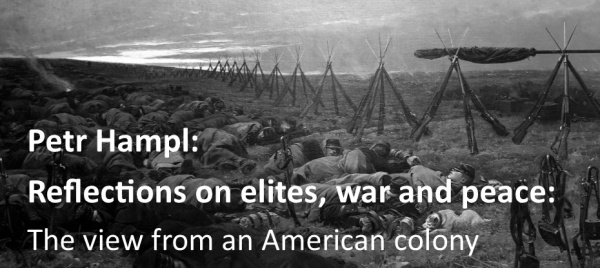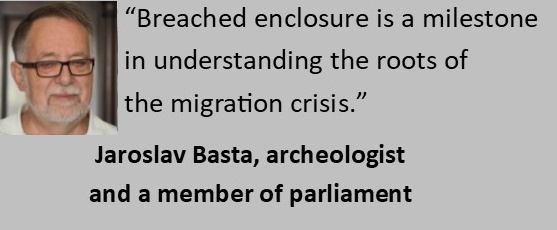Sometimes I come across statements like “I don’t like the heated positions – accept all migrants or none. Surely we should find some moderate middle ground.”
The problem, however, is that the debate is not just about the number of migrants or refugees admitted. It is about two antagonistic principled positions: 1) Every state has the right to decide who it allows to enter its territory. 2) Every person has the right to decide which country to live in. Let us add that in the case of principles, it is “either or”, there is no golden mean. If there is a conflict of interest, then one of the principles must take precedence.
The problem, however, is that the debate is not just about the number of migrants or refugees admitted. It is about two antagonistic principled positions…
The first position corresponds to how the role of the state has been understood for several millennia. The second position is new and corresponds to liberal ideology. We could also say liberal hedonism – that is, the idea that man is entitled to the satisfaction of all his desires and personal choices. So the core of the mutual dispute is really the question of whether the sovereign is the state (or the people through the state) or the individual.
In assessing the principles, one must ask for the consequences: would a world in which the state decides which foreigners may enter its territory and eventually become citizens, or a world in which each person decides where on the globe he or she will live, be better?
The problem with the second principle is primarily that it effectively legalises invasion. We can illustrate this with a model example: Let us imagine that two million members of a large foreign nation, e.g. the Chinese, come to a country with a population of less than a million, e.g. Montenegro. According to the liberal idea, the newcomers are entitled to social benefits just like local citizens and have the right to acquire citizenship. Who could then prevent the new citizens, if they so choose, from voting to join the mother state? What has always been considered illegitimate – the annexation of a foreign state – becomes a de facto “human” right. If we carry liberal ideology to its consequences, then annexation, colonization, theft of territory is legal, while defense against it is a crime.
If we carry liberal ideology to its consequences, then annexation, colonization, theft of territory is legal, while defense against it is a crime.
Surely there will be people who will argue that the above example is an exaggeration. They will probably use the argument that such a thing will not happen. However, experience teaches us that if we follow rules that can be abused, then sooner or later someone will abuse them. The model event described here will certainly not happen in one year and the current rules would not even allow it. However, we have to ask the question: Would it make a significant difference if something like this were to happen within a century? Such a prospect is real, and we would find many examples in history where migration preceded the rewriting of borders.
Support for the liberal migration principle is therefore inherently immoral. To use a metaphor: The right to live in any country is the same as the right to live in any apartment, regardless of the owner’s opinion.
Adam Votruba is a Czech historician.



